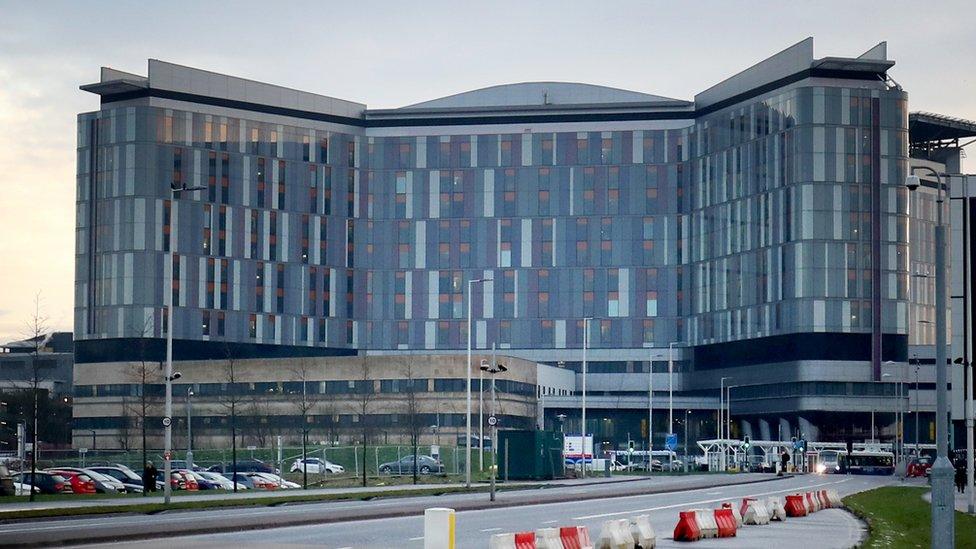Hospitals inquiry: Dad claims son given 'secret' supply of drugs
- Published
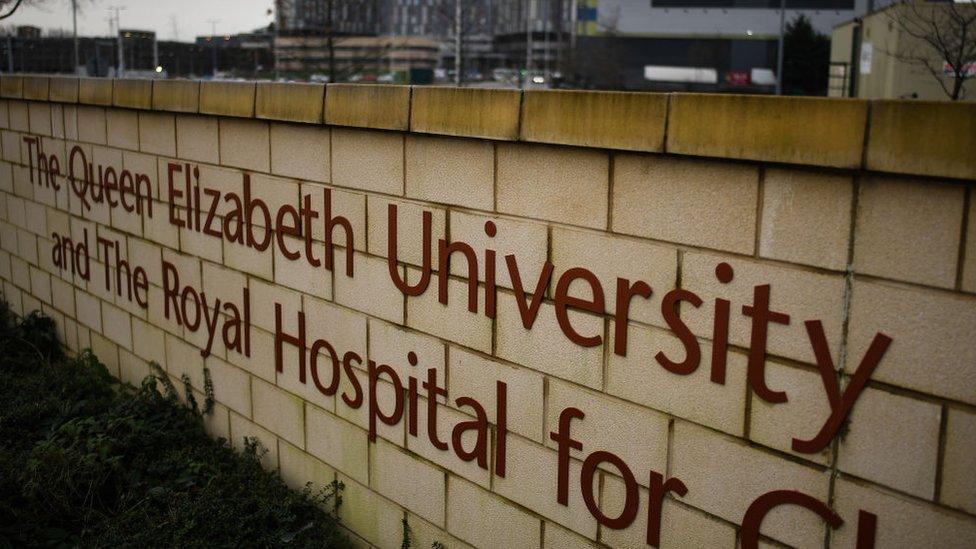
The father of a boy being treated for cancer said he believed his child was given a "secret" supply of disease-prevention drugs when a hospital had hygiene concerns.
David Campbell's son was treated at two flagship hospitals in Glasgow in 2018.
Mr Campbell told the Scottish Hospitals Inquiry his son was given the medication "as a precaution in case anything should crop up".
This was before he knew about concerns about the building's water hygiene.
The inquiry is investigating the construction of the Queen Elizabeth University Hospital (QEUH) and Royal Hospital for Children (RHC) in Glasgow, and the Royal Hospital for Children and Young People in Edinburgh.
Mr Campbell's son was diagnosed with a rare type of cancer in August 2018 when he was four years old and treated at the RHC and QEUH campus.
Mr Campbell told the inquiry his son was given a "cocktail" of antifungals and prophylactics as part of his cancer treatment.
But after reading reports about water contamination at RHC in the media, he began to raise questions about the extra supply of antifungals to children in the cancer ward.
He told the inquiry he was not told about one of the drugs - Posaconazole - being part of his son's medical plan, adding "if I ever was, then it was not fully explained why and what the gravity of taking it would be".
He said: "All we got was a generic handout put under the door to say that it was a medication that the children were going to be put on as protocol, it was better to be safe than sorry."
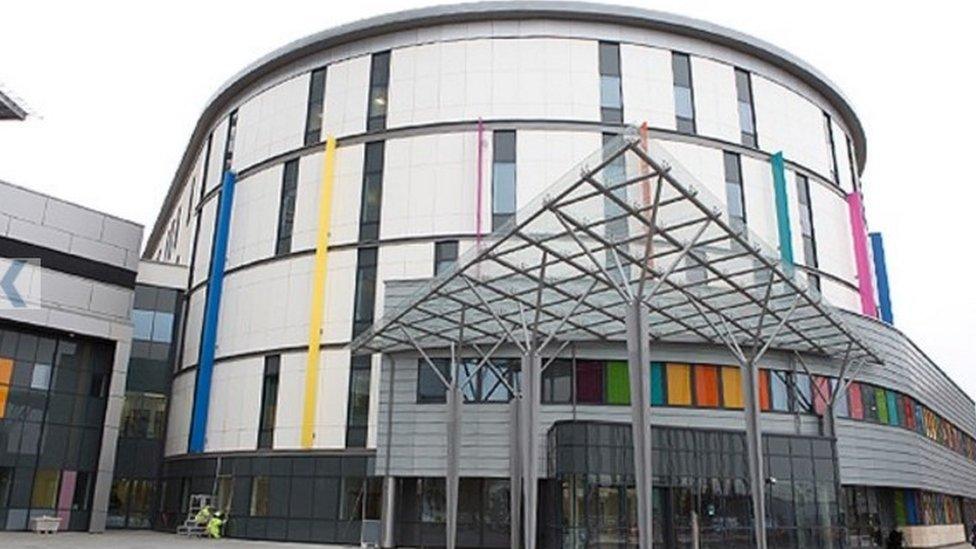
The Royal Hospital for Children in Glasgow opened in 2015
Mr Campbell said in hindsight he recognised the drug potentially helped his son fight off a hospital-acquired infection, but his child should have been in a sterile and safe environment.
"It doesn't make it right, giving them an anti-venom and letting the snake keep biting away at them," he added.
The inquiry heard Mr Campbell wrote to Jonathan Best, the chief operating officer at NHS Greater Glasgow and Clyde (NHSGGC), on 6 January last year about his concerns over the "secret use of prophylactics and other environmental issues" at the hospital.
According to a statement from Mr Campbell, Mr Best replied saying that the health board was first aware of issues in the wards in 2018 and that the health board was "alarmed" to hear about children being put on prophylactics secretly, and that families should have been spoken to about it.
'Web of deceit'
In response, Mr Campbell said NHSGGC's claims it first knew of the water contamination issues in 2018 are "preposterous."
He told the inquiry: "I can't fathom it at all. Especially after whistleblower evidence in 2017 from senior clinicians and people in respectable positions in the healthcare environment.
"So for the NHS chief operating officer to tell me that he had no idea up until 2018 is not only insulting, it's offensive.
"There is a massive cover-up going on here, a web of deceit that can only be explained by their (health board) silence."
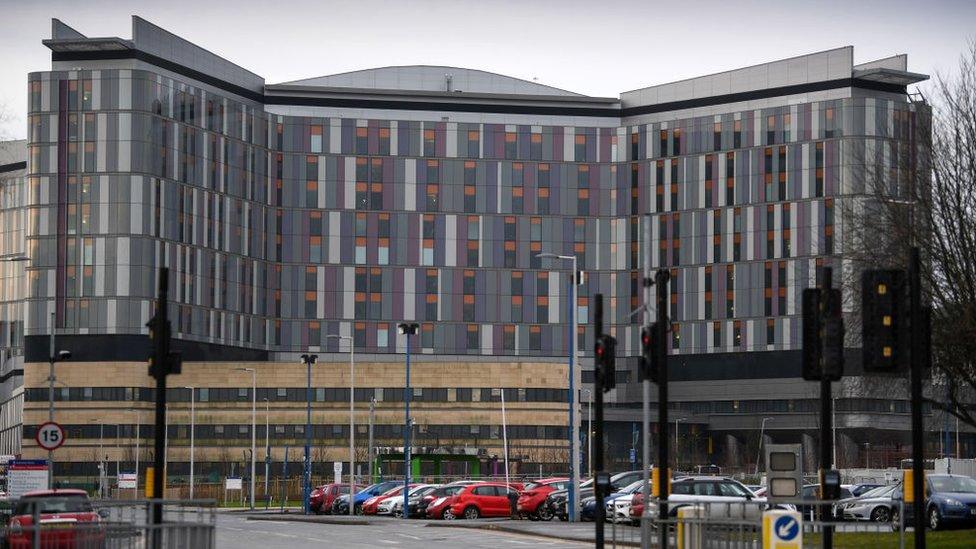
The Queen Elizabeth University Hospital in Glasgow is Scotland's biggest hospital
In a closing statement to the inquiry, Mr Campbell added: "This flagship hospital is where children were given cocktails of strong drugs to prevent them from dying - by this I don't mean what was agreed by parents for their children to fight these life-threatening cancers - I mean the incredibly powerful anti-fungal medicine pumped into them to save their wee lives from the dangers of the building that was allegedly saving them.
"To be given a chance to fight cancer you need a fortress, our fortress was rotten from within."
Earlier this year, an independent review found the deaths of two children at the QEUH campus were at least in part the result of infections linked to the hospital environment.
The inquiry in Edinburgh, chaired by Lord Brodie, continues.
NHSGGC and NHS Lothian will give evidence at a later point.
- Published20 September 2021
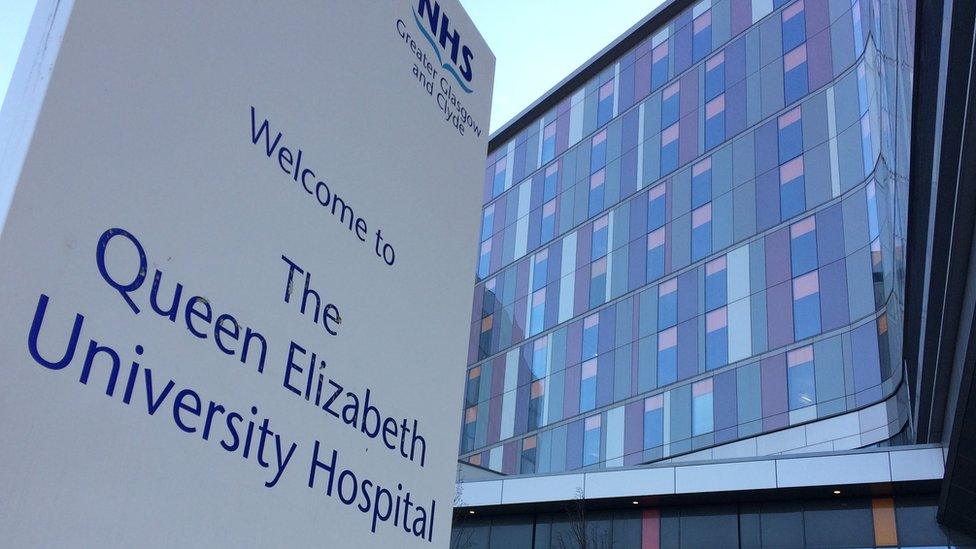
- Published23 September 2021

- Published9 May 2022
